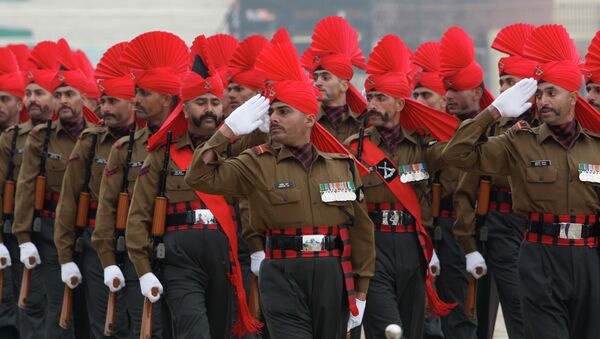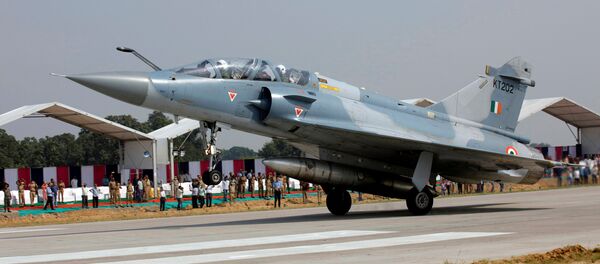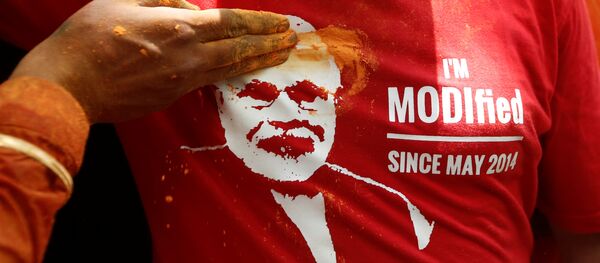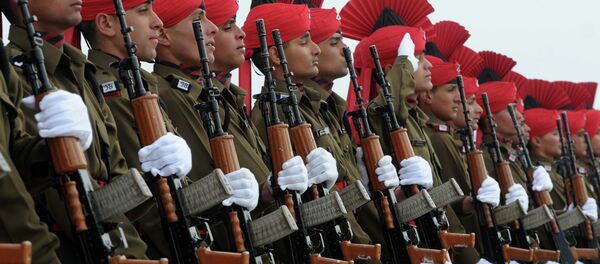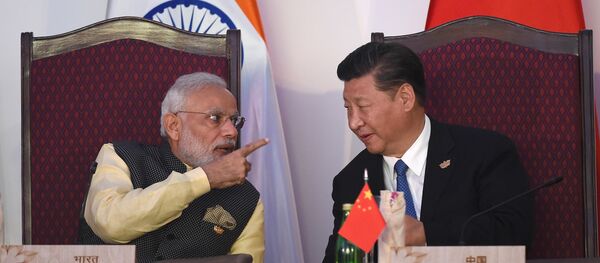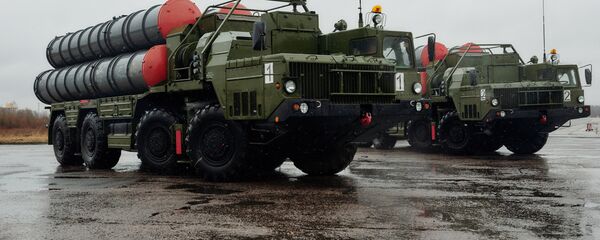"The Bharatiya Janata Party (BJP) win is really bad news for Pakistan", opines Rakesh Krishnan Simha, an Indian journalist, foreign affairs analyst and military observer.
Following the 26 February Indian Air Force's (IAF) Balakot air operation over Kashmir that resulted in the downing of Indian and Pakistani aircraft, tensions continue to simmer between New Delhi and Islamabad.
Simha holds an opposite stance.
"For the first time since independence, India has started responding to Pakistani terror attacks with devastating counter strikes", the military observer pointed out. "The classic example of Modi's policy of disproportionate retaliation was Balakot where 12 warplanes struck at a terror camp across the international border, catching the Pakistan Air Force completely off guard".
"India's withdrawal of most favoured nation status and closure of the border trade has contributed hugely to inflation in Pakistan", the journalist remarked.
According to Simha, New Delhi is likely to continue tightening the screws on Islamabad.
India and Pakistan have long been engaged in skirmishes over the disputed Kashmir region. New Delhi has repeatedly accused Islamabad of using jihadi militants to destabilise the Indian-controlled parts of Kashmir, something that the Pakistani leadership continues to deny. Relations between the two states have been largely tense since the partition of British India in 1947.
The Modi-Led Hindu Renaissance
Commenting on Modi's win, Simha explained the fading influence of the Gandhi-led Indian National Congress and pointed out differences in the INC and BJP's political agenda and foreign policy approach.
"In May 2014 when Narendra Modi won the general elections, it was the first time that a truly representative Indian government had taken over the reins of power in Delhi in more than 800 years", the journalist said. "The BJP's slogan during the 1980s was 'Proudly Say You Are A Hindu.' Modi is the first BJP leader who led the party by saying that Hindu culture and religion are the essence of India and what makes India a great nation. Modi's idea of making India a powerful and wealthy nation, which it was before the coming of the Muslim and European invaders, has appealed to Indians nationwide".
"The Hindus got tired of the Congress' Muslim appeasement policies and the suppression of Hindu renaissance. Over the past seven decades the Hindus deserted Congress for various regional parties but it was the BJP that gained the most from the crumbling of the Congress coalition", he elaborated.
Regardless of the BJP's nationalist stance Indian Muslims have also cast their ballots for Modi's party this year, Simha said, stressing that this fact has largely been neglected in the mainstream media. "Modi's moves to improve the rights of Muslim women in India have got him vocal support from Muslim women", the journalist underscored.
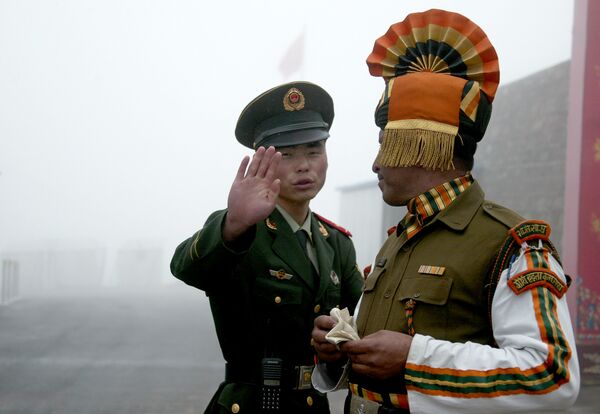
India-China Geopolitical Competition
Commenting on Modi's foreign policy strategy after the sweeping win, the journalist predicted the aggravation of India-China geopolitical competition in the South China Sea, the Pacific Ocean and at the Sino-Indian Himalayan border, as well as the further development of Indo-Russian and Indo-American ties.
The longstanding South China Sea maritime dispute involves a number of states, namely Brunei, China, Taiwan, Malaysia, Indonesia, the Philippines, and Vietnam. Citing its "nine dash lines" concept, Beijing claims most of the US-championed FONOP initiative is a violation of the country's sovereignty.
"Chinese claims on the South China Sea have led to most of the littoral countries looking up to India for support, which ties in perfectly with India's Look East policy", Simha pointed out.
In the beginning of May, the Indian navy destroyer INS Kolkata and tanker INS Shaktitook part in a weeklong pass through the South China Sea together with the US, Japan and the Philippines. Between 19 and 22 May, India conducted bilateral naval exercises with Singapore in the region.
India to Continue to Maintain Relations With Russia, US
The journalist highlighted that "Modi and [Russian President Vladimir] Putin enjoy a cordial relationship" and will continue to maintain mutually beneficial relations under the current BJP leadership.
During his previous term, the Indian prime minister has repeatedly highlighted Putin's "vital role in further enhancing the friendship between India and Russia".
President Putin has played a vital role in further enhancing the friendship between India and Russia.
— Narendra Modi (@narendramodi) 5 октября 2018 г.
We had fruitful talks today, covering various aspects of the Special and Privileged Strategic Partnership between our nations. @KremlinRussia_E pic.twitter.com/395yFKeGzt
Meanwhile, under the ruling BJP party overall Russo-Indian trade has grown from $6 billion to $10.7 billion between 2014 and 2018.
Having emphasised the importance of Russo-Indian defence cooperation, Simha noted that "high-tech weaponry from Russia such as the S-400 have captured the public's imagination and will contribute to goodwill for Russia".
Meanwhile, the US is increasingly courting India. According to Simha, India-US relations will continue to thrive as the two countries have certain shared interests such as "countering China, monitoring Pakistan's nuclear stockpile, keeping the price of oil low and securing the oil lanes".
"It comes as no surprise that under Modi the country has entered into partnerships with a number of Western nations and their allies such as Japan and the Association of Southeast Asian Nations (ASEAN)", he said. "It is due to India's close relations with the US and Japan that India was able to enter the Missile Technology Control Regime (MTCR) and get waivers for importing high-technology from the West".
According to Simha, "a strong military partnership with the US is clearly in India's favour" due to New Delhi's concerns about the rising military might of Beijing.
The views and opinions expressed by the speaker and the contributor do not necessarily reflect those of Sputnik.

